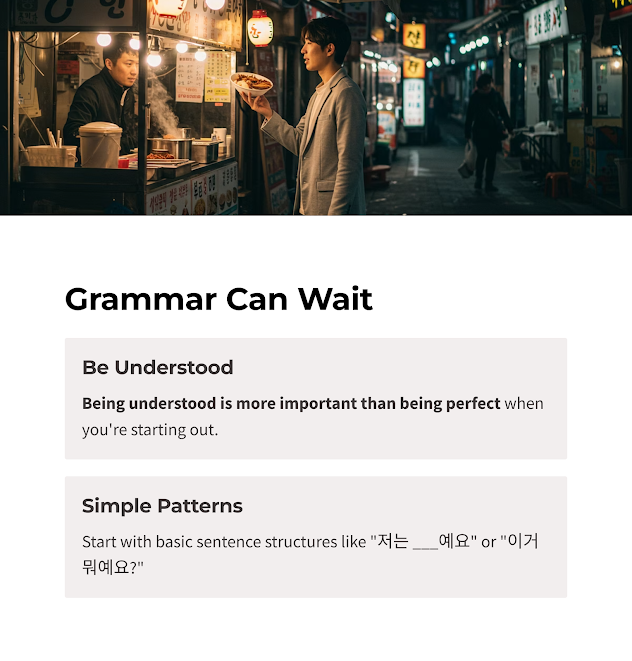Learning Korean can feel overwhelming at first, especially if you’re starting from scratch.
As a Korean-American now living in Korea, I’ve had to relearn the language in a way that’s practical, cultural, and truly immersive.
Here are beginner-friendly tips to help you get started and stay motivated.
What’s the best way to begin learning Korean from zero?
You don’t need to master grammar right away or memorize thousands of words.
The key is to build momentum through small, consistent wins, and combine study with real-life exposure.
These tips will help you build a solid foundation — and avoid common beginner mistakes.
Tip 1: Master Hangul First — It’s Easier Than You Think
Forget Romanization.
Learning Hangul (the Korean alphabet) is the smartest first step.
It has only 24 letters, and you can read basic words within a few hours.
Use free apps or YouTube videos to learn how sounds combine into syllables.
Once you can read, everything else becomes easier — menus, signs, even K-pop lyrics.
Tip 2: Focus on Common Words and Useful Phrases
Don’t start with random vocabulary lists.
Instead, learn phrases you’ll actually use in everyday conversation — like greetings, directions, or food orders.
Flashcards are helpful, but context is better.
Watch scenes from dramas or variety shows and repeat what you hear.
Tip 3: Don’t Obsess Over Grammar at the Start
Grammar is important — eventually.
But in the beginning, being understood is more important than being perfect.
Start with simple sentence patterns like “저는 ___예요” or “이거 뭐예요?”
As you gain confidence, you can explore verb endings and speech levels.
Tip 4: Practice Speaking — Even If You’re Not in Korea
Speaking helps cement what you’ve learned.
Use language exchange apps, online tutors, or even talk to yourself out loud at home.
It might feel awkward, but repetition builds fluency faster than silent studying.
If you’re already in Korea, don’t be afraid to speak — Koreans appreciate effort.
Tip 5: Learn Cultural Nuance Along the Way
Korean is tied deeply to culture — from age-based speech to unspoken body language.
As a Korean-American, I was surprised how much of the language reflected social expectations.
Watching Korean TV, listening to conversations, and observing social settings taught me more than textbooks alone.
| Learning Step | Why It Matters | How to Start |
|---|---|---|
| Learn Hangul | Foundation for reading and pronunciation | 1-hour YouTube session |
| Focus on phrases | Real-world communication | Use apps or dramas |
| Speak early | Boosts fluency and confidence | Try shadowing or language exchange |
| Skip deep grammar | Avoid burnout | Start with basic patterns |
| Learn culture | Improves understanding and respect | Watch daily interactions |








